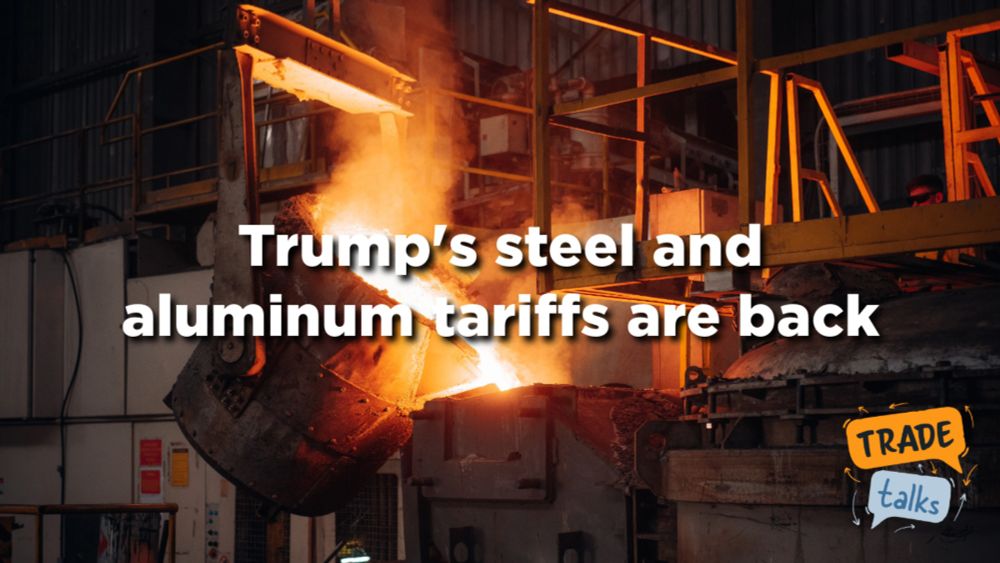Senior Economist at the OECD leading the work on digital trade. Views are my own

Our recent OECD-WTO study has you covered:
www.oecd.org/en/publicati...
See below the TLDR

www.oecd.org/en/blogs/202...
Reposted by Javier López González

📊 Discover the latest #OECDSTRI data 👇 www.oecd.org/en/topics/su...
Reposted by Javier López González

Reposted by Marion Jansen, Javier López González

President Trump first imposed tariffs on steel and aluminum in 2018, but this time it’s different. On this week's show, Ana Swanson joins me to explain.
tradetalkspodcast.com/podcast/202-...
If you keep e-transmissions duty free, upholding an open digital trade landscape,
If you can finalise the e-commerce JSI, ensuring it benefits all,
Then yours will be the #digitaltrade opportunities
#tradevalentines

data be stored domestically is equivalent to a prohibition to transfer data.
Indeed, if such approaches were adopted by all economies, global GDP would grow by 1.77%.
Indeed, if all economies removed their data flow regulation trade costs would fall, but so too would trust. Overall, global GDP would fall by nearly 1%
1. Cross-border data flows are a key element of the global economy.
Data autarky, or what might otherwise be considered as ‘full fragmentation, where all economies fully restrict their data flows, would lead to global GDP losses of 4.5% and reductions in exports of 8.5%.
What is novel about it is that it looks at the trade cost and trust benefits associated with the regulation.


www.wto.org/english/res_...
Reposted by Javier López González
doi.org/10.1787/be69...
Reposted by Marion Jansen, Javier López González

By Chris Horseman👇
borderlex.net/2024/11/29/f...
www.oecd-ilibrary.org/docserver/0f...
Find out what items were most traded as parcels (during COVID), and how governments can help expedite parcels trade across the border.
(been here for more than 10 minutes without being subjected to EM propaganda!)




